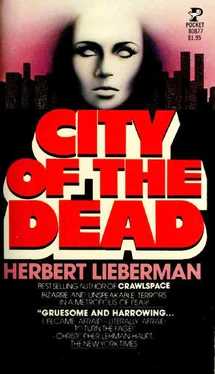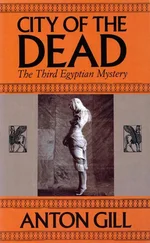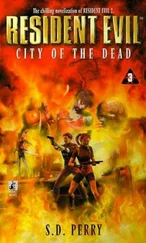“Today if you can.”
“Okay.”
“Soon as I’ve got Browder’s prints checked, I’ll call you.”
“Fine. Got any more leads?”
“On what?”
“On what?” Konig gnashes on his cigar. “What the hell have we been talking about the past quarter-hour?”
“Oh, that?” Flynn laughs. “Nothin’ really.”
“What about the Salvation Army guy?”
“Nothin’. Not a thing on him. Just a couple of dead ends. Listen—gotta run now. Goin’ down to look at some real estate.”
“Real estate?”
“An old warehouse. Downtown.”
“Warehouse? What the ‘hell you want with a warehouse?”
“Oh, just business speculation.” Flynn chuckles slyly. “You don’t think I’m gonna be a dumb cop all my life, do you?”
“You’re gonna be walking a beat out in Staten Island if you don’t get on the stick pretty fast,” Konig snarls into the phone. “Now you’ve got the identity of these two fellows. Forget about the goddamned real estate. Find that Salvation Army guy. He’s out there somewhere. You get that bastard for me, Flynn.”
11:45 a.m. Vicinity of Washington Square Park.
Mouth slung open, lips slack, still numb from Novocaine, Konig plods eastward from the dentist’s office. Already a dull pain has begun to creep back into his jaw where he’d been drilled and chiseled and gouged for the past hour and a half, a temporary cap now fitted to a badly shattered molar. His heavy, slightly lurching footsteps take him eastward now, back to the office, through Washington Square Park.
Though the torch of sciatica rages up and down his leg, nevertheless he’s chosen to walk rather than take a bus or cab. It is a warm, bright morning, people gliding lazily through the prenoon hour in the park. Already the quotidian lunch-hour spectacle is being staged there. That curious amalgam of park people are slowly taking up their chosen positions—the unconscious players in this daily Village pageant.
The chess players are already out at the tables. The folk singers and the bongo players. Governesses from cushy town houses out pushing carriages. Septuagenarians drowsing on benches. Miscegenate lovers doing their thing in the grass. The resident winos stumbling and lurching. The young panhandlers, sullen, vaguely menacing. Secretaries with bag lunches, cartons of milk. The bearded young students around the fountain, posed in carefully studies disarray, copies of Sartre, Kierkegaard, Marcus Garvey conspicuously displayed.
Konig wanders through this bazaar trying to forget himself in it, lose himself in the spectacle there. Anything rather than return to the office with all its attendant grief. There wait the daily complement of battered and slaughtered, the endless protocols to be written, phone calls to be answered, intriguing colleagues, clamoring reporters buzzing all about the place, the Mayor’s mounting wrath fanned by a press bent on conjuring up the requisite media event. And then, of course, Lolly. Perhaps a phone call awaits him) a message from Haggard. He must get back.
He moves out through the park, going east on 4th Street toward the river, his lagging steps leading him inexorably through those very ghettos he somehow associates with his lost child.
The street is a feast of sights and smells, an intaglio of ethnic mix, layers of diverse, antipathetic cultures. It throbs with a kind of vitality, and amid it all a distinct air of imminent violence. Always, he walks these streets with,, a sense that suddenly she will be there.
“ Daddy, can we —”
“ Not now, honey. I’m busy. ”
He turns. A small girl on skates rolls past him on the pavement, chasing after the sauntering figure of her father up ahead. On a street corner he passes a man in black tights, black cutaway coat, a top hat, commedia dell’arte face of white grease paint, red swirling Cupid lips, black pencil-line eyebrows and lashes limned sharply against the white. A small rhesus monkey in a red velvet jacket clings wretchedly to his shoulder, and the man wears a placard on his chest that reads: “HELP ME TO HELP THE TINY CHILDREN.” He does not move. He does not speak. His expression is disquietingly blank. He holds a tambourine out straight-armed before him, and when someone passes he jingles it with a rather quick, peremptory motion. The physique under the black tights ripples with a sleek, powerful musculature. There is something profoundly unnerving in the clown figure—its white expressionless mask; its blank, curiously unseeing eyes; its sudden, monitory movements. Konig passes quickly on, with the sound of the tambourine jingling faintly behind him.
Somewhere around Tompkins Square, he pauses to rest momentarily on a bench. Sitting there are more people, jackets off, shirt-sleeved, pale, winter-worn faces thrust upward at the bright, benevolent April sun. The young are lolling on the grass. Hero sandwiches, guitars, Orange Juliuses. On the ground beside his bench a young girl with dazed eyes plays a reed pipe—no more than a toy, really. She plays for no one. Not even for herself. Indeed, she seems scarcely aware of where she is or what she is doing. The tune she plays is aimless and a little mournful. For a moment Konig thinks of Heather Harwell, nee Molly Sully, the small pretty face with the avid eyes, the pathetic little packet of picture postcards concealing pornographic views of herself.
The ache in his jaw grows sharper as the Novocaine wears off. He rises stiffly, and in that moment a young girl passes. He sees her fleetingly in profile, a woozy specter, not so much a person as a presence, an aura of something sharply, achingly familiar. Suddenly his heart bounds in his chest and he lurches out after her, following the back of her head, some fifty feet ahead.
She is a young girl, late teens to early twenties. The configuration of back and head acutely familiar. That stride, hurried but aimless, he has seen before. That certain slouch, not slovenly, but dispirited—the sad slump of shoulders. Even from the back, he can intuit a certain prettiness.
She’s no more than a few paces ahead now, easily overtaken. Still, he hangs back, without any intention of ever closing the gap. Knowing this illusion, having experienced it many times before, he wants only to linger in its wake, savoring it a while. For the time being, it is Lolly up there walking in the jacket and paint-spattered jeans. Must be a painter, he reasons, the illusion growing sharper in his drugged, slightly disoriented mind. “ Oh, Lolly — Lolly .”
He follows the figure through a narrow street to a luncheonette, loitering outside while she has a cup of coffee and scans a magazine. Then she’s outside and once again he’s following her, north, up Avenue B.
. Quite a picture he makes, this untidy, fitful-looking man with the tousled hair, the tie askew, the soiled raincoat open, flying behind him. The girl goes into a small grocery : store on 12th Street while once again he hovers outside in the doorway of a shoe repair shop with its door open to the balmy spring day. Inside, two diminutive Italian cobblers bark back and forth at each other over the repetitive banging of a compressor.
Out she comes again, this time with a small bag of groceries. He waits for her to move up the street, then moves out directly behind her. After twenty or so paces, she stops short, glances into the window of a small Japanese gift shop featuring incense and cheap bric-a-brac. He stops short too, botches his attempt to make it appear casual, and in that moment she darts a backward glance at him, then starts quickly north again.
In the instant of that backward glance, she’d turned her face to him. But so ephemeral was the impression that the features remain only a blur in his mind. Still, he fancies now that in that fleeting second when their eyes met, he detected a familiar frown—Lolly’s frown—and that was Lolly’s look of mild displeasure.
Читать дальше












